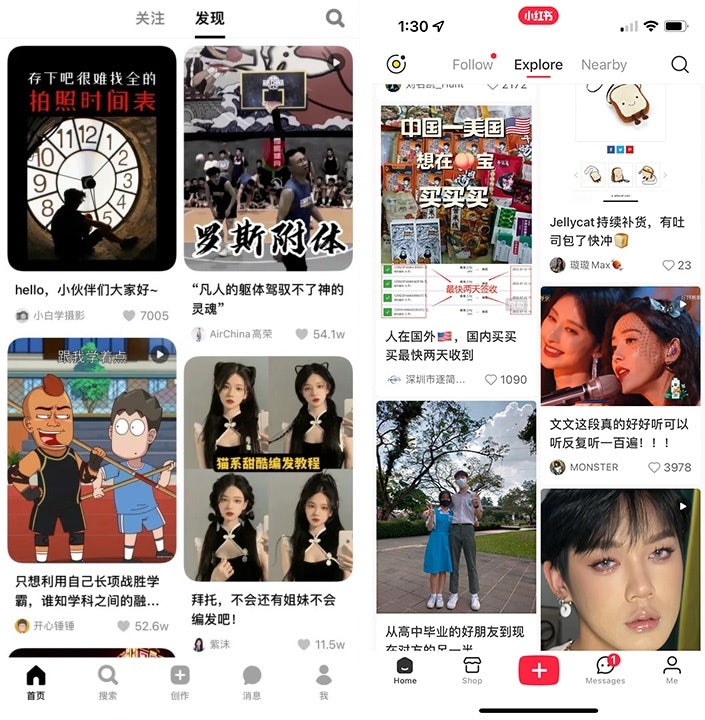As the social media battlefield gets increasingly fierce, platforms are looking for new business and content models to grow their stagnant traffic pools. But they are not necessarily succeeding.
In the west, Instagram’s latest move to transform itself into a recommendation-based short-video app like TikTok has sparked a hot debate among users and top influencers, including Kylie Jenner. Now, the Meta-owned platform seems to have temporarily backtracked from the plan.
Meanwhile in China, ByteDance’s latest app called Kesong 可颂 — which mimics lifestyle platform Xiaohongshu — has been removed from Apple and Android stores only a few weeks after its release on July 11. To date, the tech giant has not officially stated the reasons behind its withdrawal. So, what went wrong?
Firstly, when Kesong was released, many early adopters rushed to test it. In less than two weeks, it amassed 64,000 downloads according to data analysis platform Qimai. But despite this initial appeal, it didn’t necessarily live up to expectations: in the app’s rating section, users complained that “the explore page was very similar to Xiaohongshu, if not identical.” Some predicted the flop, with one user stating: “Without differentiation, this constitutes intellectual property infringement and monopoly.”
This is not ByteDance’s first attempt to imitate Xiaohongshu’s “planting grass 种草” business model, which relies on user recommendations to entice others to purchase products. Back in 2019, Douyin launched a content community platform dubbed Xincao 新草 which ceased operating in less than one year. Because Xincao’s home page did not have a publish button, pictures, texts, or videos could be posted only when users clicked on topics and tags. Clearly, this was seen as a flaw and discouraged people from creating and publishing content frequently.
As Yuwan Hu, account director at Daxue Consulting, told Jing Daily, “Xiaohongshu is a strong player for both experience and the amount of relevant content it has, which is crucial for the grass seeding model. This is the result of years of work.” In comparison, without having an active community that eagerly shares product reviews online, Xincao was destined to fail.

Chinese TikTok has over 700 million daily active users (DAU), which is seven times the number of DAU on Xiaohongshu. So why would the tech giant relentlessly aim to create a similar app? In short, to reach affluent consumers.
Douyin’s commerce is dominated by mass products; very few luxury brands have tested the selling option on the site. By contrast, Xiaohongshu users tend to be more affluent. According to the lifestyle platform, 63 percent of its users are elite white-collar workers with an average annual disposable consumption expenditure $7,300 (49,200 RMB). “International brands are targeting female demographics with great purchasing power,” said Penny Zhan, social media specialist and C Opportunity founder, adding, “no one would want to let this opportunity slip away.”
From Weibo’s Oasis, to Alibaba’s Taibang, to Douyin’s Kesong, all these applets made Xiaohongshu their benchmark. So far, none has succeeded in replicating its particular brand of success. In an era limited by the gigabytes of a phone, netizens’ willingness to download and concede space to an app is very modest — perhaps nearly zero if it is an applet with the same functionality, feature, and algorithm.
Kesong may not be Douyin’s last effort, but it is clear that until it creates a distinctive social platform neither users nor regulators will approve.

